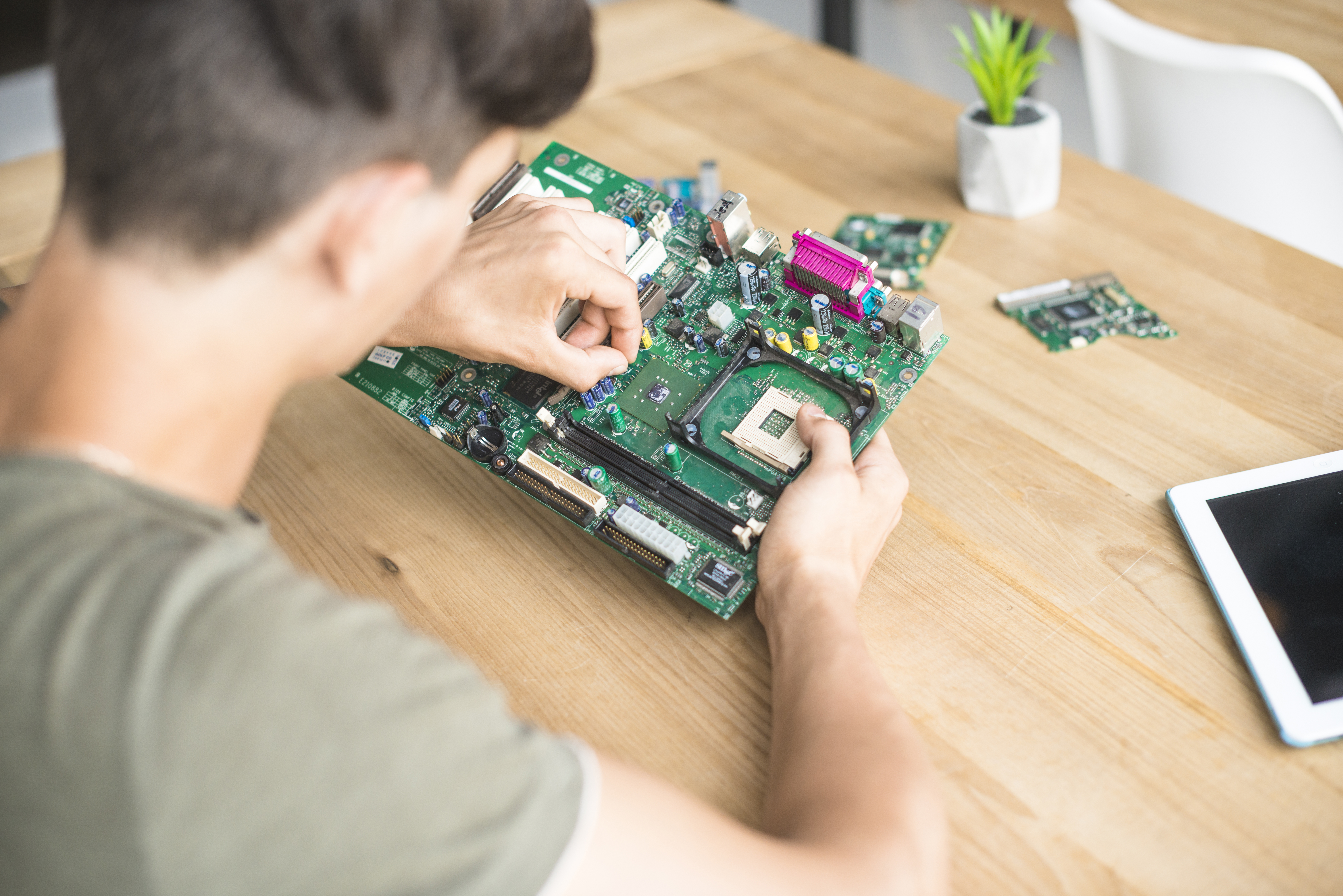Generally, a motherboard is a computer or laptop system circuit board where all other PC components are installed for better efficiency. The motherboard packs together the most important parts of a computer system. It’s the base of the whole computing of the laptop system.
Without a motherboard, a laptop is just like a car without tires. As the nerve center, it enables all other components to communicate, serving as the device’s backbone. With such an important role, it’s hardly unexpected that a faulty motherboard might create serious issues.
Identifying motherboard faults can be difficult as they might present various difficulties. Here we’ll review some of the most common causes of motherboard difficulties, lead you through troubleshooting procedures to diagnose your problem, and suggest solutions.
What are the core symptoms of a falling laptop motherboard?
Here are some of the symptoms of a falling laptop motherboard:
Physical damages
A deteriorating motherboard frequently exhibits physical damage, particularly swollen capacitors. When the motherboard begins to overheat, the capacitors on it become larger than usual. Because ancient motherboard types are prone to overheating, this is more typical.
Computer freezing
Computer freezing is yet another major symptom of a motherboard failure. This might occur unexpectedly while working on your PC. However, not all freezes and malfunctions can be attributed to the motherboard; there may also be software issues. However, if the freezing occurs regularly, the problem is most likely related to the motherboard.
Burning Odor
If you sense a burning odor from the laptop, you should promptly switch it off. This implies that the motherboard within the PC has reached its maximum temperature and should no longer be utilized.
Regardless, if you persist in using the motherboard, it may also affect other components. This typically arises by connecting mismatched equipment to the motherboard, resulting in short circuits.
Malfunctioning applications
Despite motherboard failure, if you can still pass the entire boot process, all the major applications running on your desktop or laptop system may start crashing. This error arises when the motherboard fails to operate; its ability to supervise the hardware components will be minimal. Thus, applications’ performance will experience constant slowdowns and lag times.
If your laptop’s motherboard is still facing technical glitches, and you don’t know how to diagnose laptop motherboard problems, get in touch with Computer Emergency Room, as we have a professional team of computer engineers who are happy to assist you!
Super-effective Ways to Diagnose Laptop motherboard issues
A user or expert frequently employs two troubleshooting categories to resolve a defective board. The first determines if the machine performs POST and continues to boot, while the second determines if the system can no longer complete POST.
POST is simply a diagnostic test performed on your board’s BIOS to determine whether or not peripherals such as hard drives, video cards, RAM, keyboards, or mice are attached. If the relevant peripherals are recognized, BIOS loads the operating system.
Final Thoughts!
Ultimately, the motherboard is the most sensitive part of the laptop system. It can stop operating or even become slow if it doesn’t work appropriately. So if you want to diagnose laptop motherboard problems, read the information mentioned above. I hope this will help you out.
OR
You can get in with the best computer repair specialists Computer Emergency Room.

